What To Do When Your Elderly Parent Keeps Falling
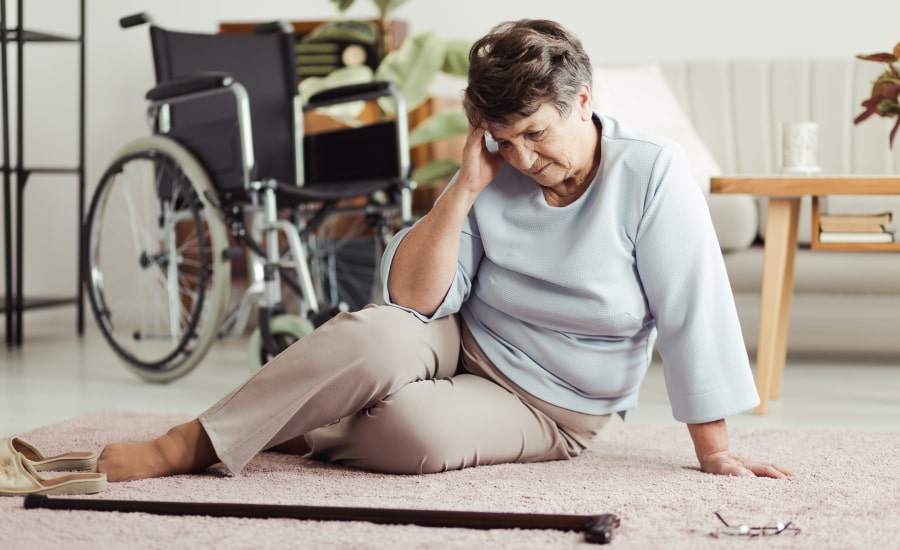
Research shows that one in four people, aged 65 or older, falls each year, with a second fall occurring right after the first one.
If your elderly parent has experienced recurrent falls, they are not alone — as the risk of falling increases with age.
We’ll share what to do when an elderly parent keeps falling and tips on how to prevent recurrent elderly falls.
Table of Contents
What To Do When an Elderly Parent Keeps Falling
The first fall of your aging parent can cause a lot of worry. And while mom or dad may not have suffered any severe injuries from the first fall, knowing how to respond to recurrent falls in the elderly can help prevent future falls.
Here’s what to do when elderly falls keep on occurring:
- Discuss your elderly parent’s health with their doctor: Schedule a medical evaluation with your parent’s geriatrician. This can help identify any underlying medical conditions that might be contributing to falls such as neurological issues or side effects from fall risk medications.
- Ask about your elderly parent’s vision: Make sure your senior parent gets an eye check-up at least once every two years to determine eye conditions that can contribute to elderly falls, such as glaucoma and cataracts.
- Evaluate your elderly parent’s fall risk: Consider having a professional, like an occupational therapist (or Always Best Care), perform a fall risk assessment for your senior parent. This type of assessment determines your loved one’s step length, stride time, balance, and gait, to pinpoint specific areas of vulnerability. The Balance Tracking System is a digital fall risk assessment tool that evaluates a person’s balance.
- Modify your elderly parent’s home: Clear walkways of clutter, equip the bathtub with non-slip mats, and install grab bars, raised toilet seats, and shower chairs in the bathroom, to make their living environment safer for their condition.
- Equip your elderly parent with assistive devices: Improve your senior parent’s balance by equipping them with mobility aids, such as canes or walkers.
- Make an emergency plan: Have a plan in place for what to do in case of a fall, including post-fall procedures and emergency contacts, nearby medical facilities, and instructions for accessing your parent’s medical information.
- Stay informed: Keep yourself educated about fall prevention strategies.
- Consider getting professional help: Hire a caregiver to help with your senior parent’s daily activities.
Causes of Recurrent Elderly Falls
Falls among the elderly can occur due to different risk factors, including:
- Chronic health conditions: Elderly individuals can suffer from chronic health conditions like arthritis, heart disease, or diabetes, which can affect their mobility, strength, and overall physical condition. These disorders often weaken muscle strength and balance, increasing the likelihood of falls.
- Poor balance: Age-related changes in balance are common due to the deterioration of the inner ear, which plays a key role in maintaining balance. In addition, weakened muscles can contribute to a greater risk of falling.
- Impaired vision: Impaired vision can make it difficult for the elderly to navigate their environment safely, leading to a higher risk of trips or falls.
- Fall risk medications: Certain medications prescribed to the elderly, such as sedatives, antidepressants, and antihypertensives, can increase the risk of falls as they can cause dizziness.
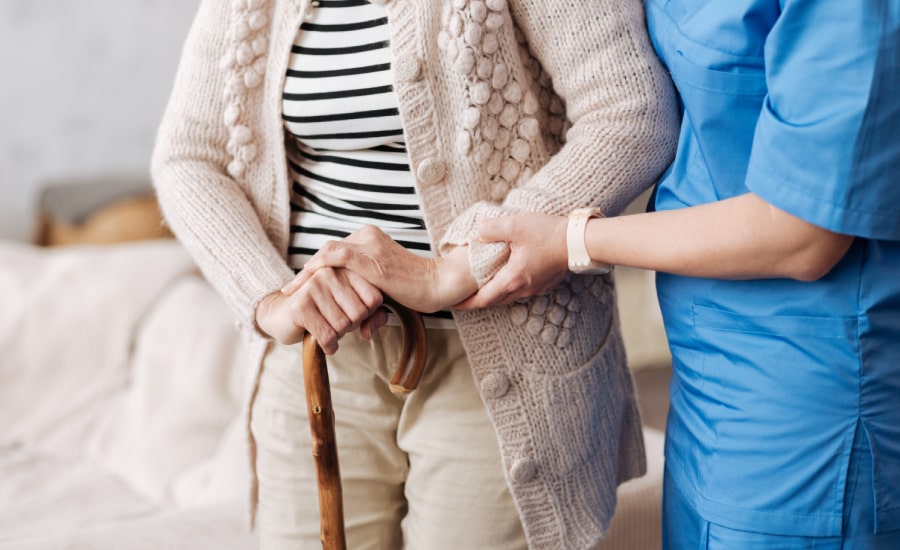
How To Prevent Recurrent Elderly Falls
In addition to making your elderly parent’s living environment safer, there are other ways to help prevent repeated falls.
Here’s how you can help prevent your elderly loved one from experiencing recurrent falls:
- Promote regular exercise: Promote exercises that enhance strength, balance, and flexibility to improve your senior parent’s balance. Exercises such as squats, balance walking, or gentle yoga can be particularly beneficial for increasing stability.
- Schedule eye exams: Make sure your senior parent undergoes regular eye examinations, as optimal vision can help prevent future falls.
- Encourage your elderly parent to stay hydrated: Make sure your senior parent drinks eight glasses of water a day, as dehydration can contribute to weakness and dizziness.
- Limit alcohol consumption: Minimize your senior parent’s alcohol intake so it doesn’t impair their balance and coordination.
- Encourage your elderly parent to get enough sleep: Your senior parent should get seven to nine hours of sleep. This will help them maintain a regular sleep routine and prevent tiredness and disorientation, both of which significantly increase the risk of falls.
- Make sure your elderly parent eats a balanced diet: A nutritious diet rich in calcium and vitamin D is important for bone health, which can help prevent injuries in case of falls.
- Review medications: Consult with healthcare providers to review your senior loved one’s medications. Some drugs can affect balance and alertness, so it’s important to be aware of these side effects.
- Assess your elderly parent’s living environment: Conduct a thorough review of your parent’s living space. Remove tripping hazards like loose rugs, clutter, and electrical cords from walkways. Ensure adequate lighting, especially in hallways and staircases.
- Install safety devices in your elderly parent’s home: Install grab bars in the bathroom, along stairways, and in other high-risk areas. Consider using non-slip mats in the bathtub and on shower floors.
- Educate your elderly parent: Attend workshops or seminars on fall prevention with your parent. Teach them safe methods on how to get up from a sitting position and turn while walking, as slow and careful movements can help reduce the risk of falls.
- Make sure your elderly parent wears proper footwear: Encourage your parent to wear non-slip shoes to prevent slips and falls.
- Monitor chronic conditions: Keep a close eye on any chronic health issues that might affect balance or mobility, such as diabetes or heart disease.
- Utilize a personal emergency response system (PERS): Equip your loved one with a personal emergency response system to enable them to call for immediate medical assistance whenever a fall occurs.
- Consider your elderly parents living on one floor: If your aging parent’s home has multiple levels, consider arranging for them to live on one floor so they don’t have to navigate the stairsnavigate the stairs
- Encourage your elderly parent to wear appropriate clothes: Make sure your senior parent wears clothes that fit properly. Avoid long, loose clothing, such as nightgowns, that can pose a tripping hazard.
If Your Elderly Parent Keeps Falling, Is It Time for In-Home Care?
Yes, if your elderly parent experiences recurrent falls, that’s an indicator that it’s time to consider in-home care.
Recurrent elderly falls can be a sign of declining physical strength, balance issues, or other health-related concerns that require professional attention. In-home care can provide support and timely medical intervention for your elderly loved one.
A vetted and trained caregiver can provide the proper in-home care. They can assess risk factors in your senior parent’s home, help with daily activities such as light housekeeping, and make sure that any medical needs are addressed promptly.
In-home care can help reduce the risk of falls, while providing you with peace of mind knowing your senior parent is receiving attentive and specialized care in their own home.
In addition, this approach fosters a sense of independence for your senior parent, while ensuring that their health and safety needs are met.
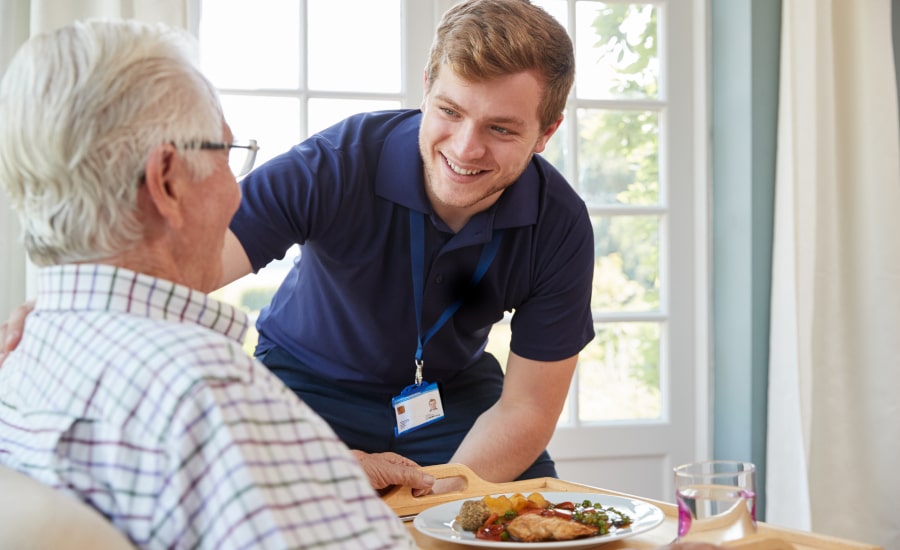
Explore Elderly Care at Always Best Care Senior Services
Always Best Care Senior Services was founded with the mission of easing the burden caregivers may experience.
Our team is compassionate and committed to delivering reliable and trustworthy care for your senior parent. We prioritize understanding each person’s unique needs and preferences, enabling personalized care.
With operations across over 225 territories, our goal is to create a nurturing environment where seniors can thrive, and their families can have the peace of mind knowing their loved ones are in capable and caring hands.
Our senior care services include:
- In-home care services: We offer compassionate care for your senior parent within the familiar and comforting surroundings of their own home. Our services include fall prevention, nutrition monitoring, meal preparation, and more.
- Skilled home health care services: We develop customized care plans for seniors recovering from illnesses or those with specific needs. Our services include chronic illness and medication management, among others, which are tailored to meet the unique needs of your senior parent.
- Specialized home care services: We diligently monitor your loved one’s health using advanced methods and technology, such as remote patient monitoring and personal emergency response systems.
- Respite care services: We offer you the chance to take a much-needed break to focus on work or other personal responsibilities, as our skilled caregivers can provide exceptional care and attention.
- Senior living referral services: We assist in finding the perfect senior living community for your elderly parent based on their needs and location preferences.
- Veterans assistance program: We can help your senior parent obtain financial support for their healthcare needs, as our way of thanking them for their service.


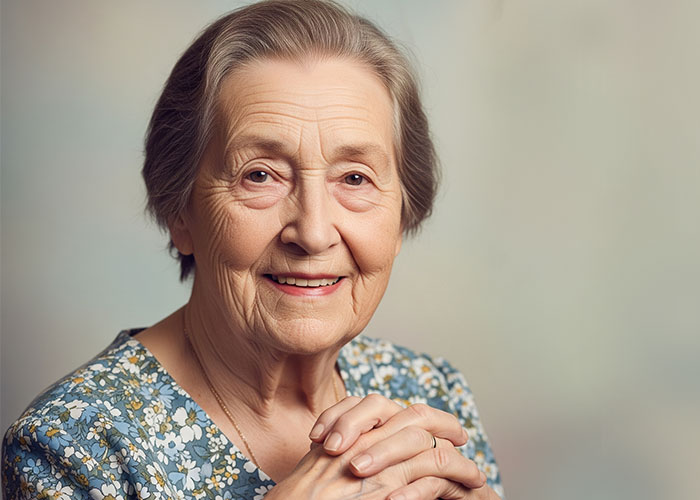
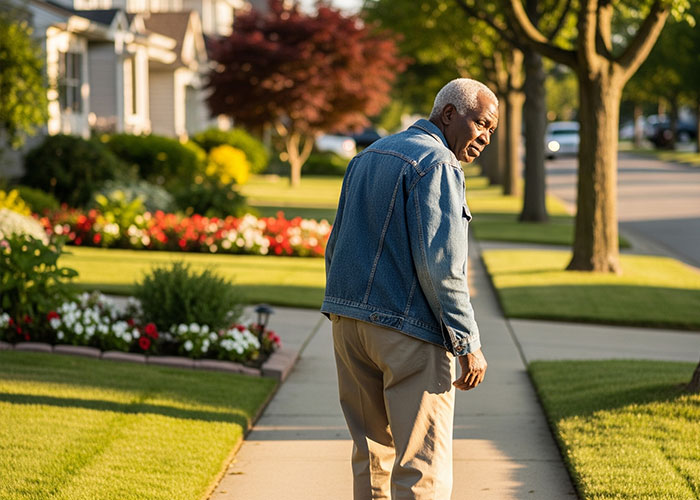
![10 Senior Living Technologies You Should Know About [+ FAQs]](https://alwaysbestcare.com/wp-content/uploads/2025/06/senior-living-technology-hero-image.jpg)
